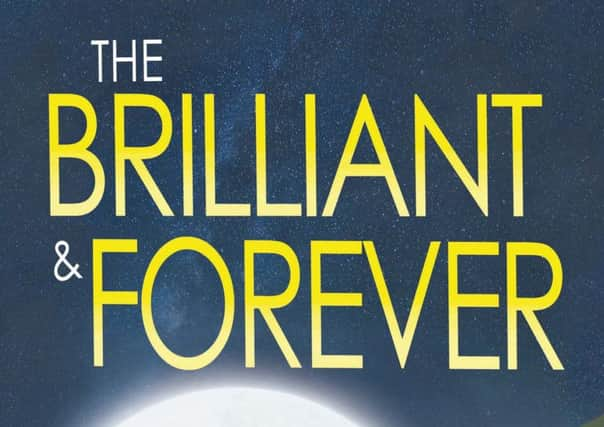Book review: The Brilliant & Forever by Kevin MacNeil


The Brilliant & Forever by Kevin MacNeil | Polygon, 245pp, £9.99
If anyone is ever crazy enough to try and turn Kevin MacNeil’s latest novel into a film, the only way they could really do it justice would be as a cartoon. How else to capture the strange, futuristic Scottish island setting, in which humans and alpacas (yes, alpacas, talking ones) live uneasily alongside one other, the latter group discriminated against, patronised and generally treated as second-class citizens? And how else to capture the unique quirks of some of the characters – Peter Projector-Head, say, who, we are informed, was born with a film projector in his head – a device which is “continually projecting images, ideas, memories, aversions, wishes. He cannot be fully present, hence he is perpetually frustrated.”
Advertisement
Hide AdWhat would our notional animated movie look like? Well, if you were searching for the perfect visual idiom your first port of call would probably be the artist Charles Avery, originally from Oban, who has spent much of his very successful career to date drawing the inhabitants of an imaginary island. Although it differs from MacNeil’s island in many ways, Avery’s island shares its distinctive retro-futuristic feel, and like MacNeil’s it also seems to serve as a prism through which we might view contemporary Scotland – alien enough to feel exotic, yet with enough similarities, subtle and otherwise, that you feel compelled to draw comparisons.
It’ll never happen, of course, the big screen adaptation, but it would certainly make for one hell of a film, because Avery is one hell of an artist, MacNeil is one hell of a writer and this is one hell of a book. Right from the start – in fact, particularly at the start – the prose is deliciously dense with ideas. It’s as if MacNeil’s standard way of working is to first write a sentence, then atomise it with a hammer, sift through the shattered remains, inject a minimum of 16 interesting ideas or sly gags and then put it all back together again. And if that makes it sound precious or self-consciously literary, don’t worry – it isn’t. The net effect is a book that bounces effortlessly from one idea to the next with a compelling energy and a giddily addictive sense that anything can happen, and probably will.
The novel’s unnamed narrator is a writer living on an island that bears some resemblance to NacNeil’s native Lewis (the castle, the Chinese takeaways, the wealthy “whitehousers” and poorer “blackhousers”). To survive in a place like this, he tells us, you have to have friends. His are two fellow writers – Macy, who washes dishes with him in a hotel kitchen, and Archie, perhaps the greatest writer Alpacahood has ever produced.
When we first meet the trio, they are discussing the Brilliant & Forever – the island’s famous literary competition in which they are all about to compete. In a place where “everyone wants to be a writer” and the standard greeting is “what are you working on?” the B&F is the highlight of the year, with the winner standing to score a lucrative publishing deal. A win for Archie, however, could potentially be a game-changer in human-alpaca relations, as an alpaca has never before won the B&F.
After some very entertaining but perhaps ever-so-slightly perfunctory scene-setting, we are quickly launched into the contest itself, and as the writers take it in turns to read their work to an audience of 20,000 gathered on the green in front of the castle, the novel almost morphs into a short story collection, with all 13 stories reproduced in full. The book might have lost momentum here, but MacNeil shows himself hugely adept at creating a series of distinctive literary voices, and skilfully weaves these various set-pieces into the main narrative before finally poleaxing the reader with a completely unexpected tragi-comic final act.
On one level, this is a smart, witty send-up of the hypocrisies of both island life and the literary scene, but it’s also a wise, warm-hearted meditation on the human condition. And, indeed, the alpaca condition. In fact, after reading this you’ll never be able to look at an alpaca in quite the same way again.
• Kevin MacNeil will be appearing with novelist Benjamin Wood at the Aye Write festival in Glasgow on 12 March, www.ayewrite.com
